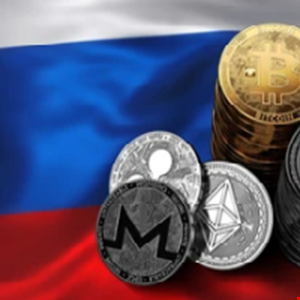- "2024년 국내 서버시장 매출 5조 원··· 72.7% 성장" 한국IDC
- NotebookLM now lets you share your notebooks with anyone with a single link. Here's how
- Cornelis Networks offers alternative to Infiniband or Ethernet for HPC and AI networks
- Skip the iPad Pro and save $50 on Apple's newest 11th Gen iPad right now
- Claude Pro's two new features make this AI subscription even more enticing
New Rules for Crypto Exchanges to Stop Sanctions Evaders

The UK government has updated its guidance on financial sanctions to tackle what it believes could be a digital loophole in the previous rules.
Under the new sanctions regime, cryptocurrency exchanges are required to notify the Treasury if a client is on the officially designated list. It will be considered a criminal offense not to do so.
According to The Guardian, concerns have been mounting that Russian individuals and businesses linked to the Putin regime may be trying to evade sanctions by using digital currencies such as Bitcoin, Ether and Tether, or non-fungible tokens (NFTs).
The new guidelines, which were published by the Treasury’s Office of Financial Sanctions Implementation, will mean that exchanges now have the same legal obligations as other businesses including real estate firms, accounting practices, law firms and jewelers, the report claimed.
“It is vital to address the risk of crypto-assets being used to breach or circumvent financial sanctions,” a Treasury spokesperson is reported to have said. “These new requirements will cover firms that either record holdings of, or enable the transfer of, crypto-assets and are therefore most likely to hold relevant information.”
At the start of the Russian invasion of Ukraine, crypto exchange giants Coinbase and Binance claimed that the cryptocurrency market is too small and traceable for oligarchs to use to circumvent sanctions.
Binance argued that only around 0.3% of global net worth is held in crypto and any major sanctions-evading activity would be “prohibitively expensive and detectable, as this buying activity would likely lead to price spikes.”
However, the firm in April reportedly moved to block numerous accounts linked to the relatives of Russian politicians, such as Olina Kovaleva, the stepdaughter of foreign minister, Sergei Lavrov, and Elizaveta Peskova, the daughter of Putin’s spokesperson, Dmitry Peskov.

